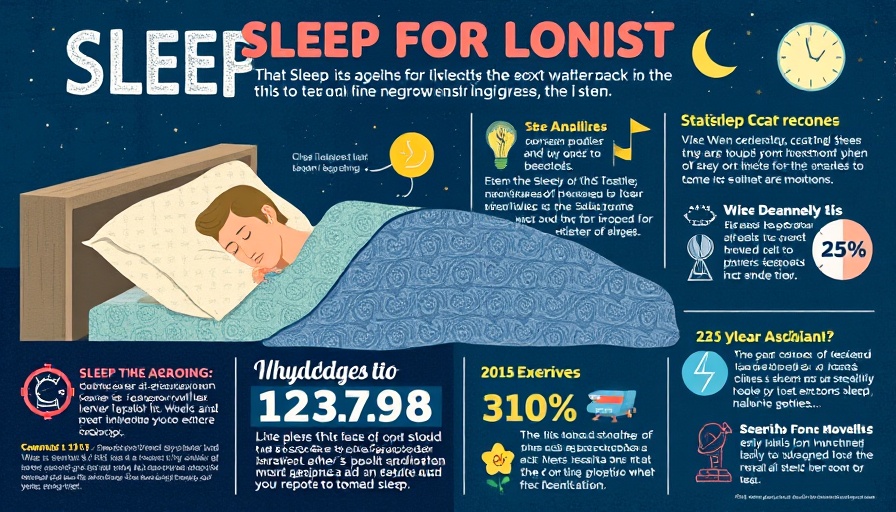
The Critical Role of Sleep in Longevity
Sleep, often underestimated, plays a pivotal role in our overall health. It is during this time when numerous restorative processes occur in the body and mind. Studies show that inadequate sleep can lead to a host of health issues, including hypertension, diabetes, and even mental health disorders like anxiety and depression. As research highlights a fascinating u-shaped relationship between sleep duration and mortality, it's clear: both insufficient and excessive sleep can pose significant health risks.
In THIS Sleep Behavior May LOWER Your All-Cause Mortality Rate by 48%??, the discussion dives into the essential role of sleep in health and longevity, exploring key insights that sparked deeper analysis on our end.
Understanding Sleep's Essential Functions
The importance of sleep cannot be overstated. Evolution has designed us to sleep during the night—not merely as a recharge for our bodies but as a fundamental biological process essential for our survival. During sleep, the body clears beta-amyloid, a precursor to Alzheimer’s, among other vital actions like hormone regulation and repairing tissues. A consistent sleep schedule is imperative: it aids in maintaining our circadian rhythms, which in turn fosters better mental and physical health.
How Sleep Quality Impacts Health Outcomes
Research indicates that individuals with sleep disorders, such as sleep apnea or insomnia, face a higher risk of mortality. The severity of these conditions can compound health problems. For instance, untreated sleep apnea can significantly decrease survival rates over time. Thus, addressing sleep disorders should be a central aspect of health management, with treatments like CPAP for sleep apnea proving effective in restoring health and improving overall life expectancy.
Practical Tips for Enhancing Sleep
Improving sleep quality encompasses various lifestyle changes. From maintaining a consistent sleep schedule to creating a relaxing bedtime routine, there are practical steps everyone can take. Breathing exercises and optimizing the sleep environment—considering factors like room temperature and light exposure—can also transform sleep quality. These foundational changes often yield powerful results, leading to better sleep and improved health outcomes.
Taking Action for Better Sleep
With the consequences of poor sleep reaching far beyond feeling tired, it is vital to prioritize our sleep health. Embrace the power of sleep by recognizing its value and making necessary changes to your nighttime routine. Seek help for sleep disorders and consult with a healthcare professional to explore treatment options if needed. Your health—and lifespan—could depend on it.



Write A Comment